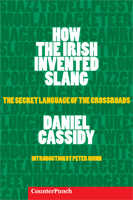 A few weeks ago, I heard Daniel Cassidy on the Last Word with Matt Cooper. It was a lively interview, and Cassidy’s premise – that many American slang words originate from the Irish language – was an intriguing one.
A few weeks ago, I heard Daniel Cassidy on the Last Word with Matt Cooper. It was a lively interview, and Cassidy’s premise – that many American slang words originate from the Irish language – was an intriguing one.
I ordered the book, and it’s arrived. It’s more scholarly that I would have expected from the interview (turns out that Cassidy is a professor and founder of the New College of California), and the historical as well as etymological background is well-drawn. What’s really astonishing is that so few words in English dictionaries are credited to Irish (most of Cassidy’s English words are listed “origin unknown,” and when you think about the huge diaspora, it’s a certainty that the Irish would have contributed words to English.
Some examples from the book:
- Baloney – Béal Ánna, meaning silly, foolish talk
- Boss – Bás, meaning boss, best, very good
- Brag – Bréag, meaning a lie, exaggeration, deception
- Cop – Ceap, meaning a protector or chief. The verb “ceap” has meanings including to catch or intercept.
- Daddy – Daidí
- Gab – Gab, a chattering mouth
- Goon – Guan
- Hick – Aitheach, meaning a peasant, a churl
- Jazz – Teas, meaning heat, passion, excitement
- Lucre – Luach Áir, meaning reward of gold
- Shack – Teach, meaning house
- Shanty – Seantigh, meaning old house
- Slob – Slab, meaning mud or a dirty or slovenly person
- Smashing – ‘s maith sin, meaning “it is good”
- So long – Slán
There are many more, and I highly suggest the book. At the very least it’s bound to lead to some interesting conversations!
Technorati tags: book, Irish, slang, word, Daniel Cassidy












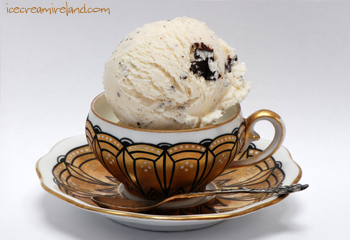 For today’s
For today’s 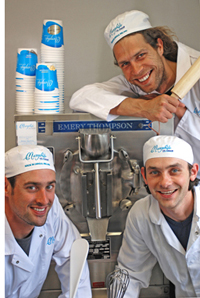 The recipe came from an idea from Cian, our
The recipe came from an idea from Cian, our 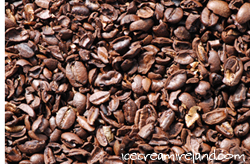 Break the coffee beans into smallish pieces using the bottom of a bowl or a food processor.
Break the coffee beans into smallish pieces using the bottom of a bowl or a food processor.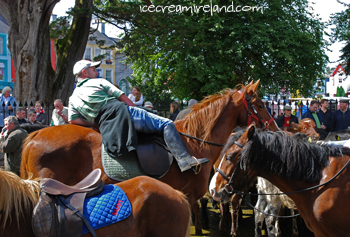 I spent today out and about in the
I spent today out and about in the 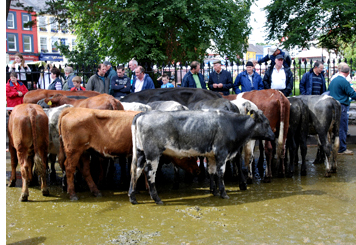 Traders lined the streets hawking work boots and power tools, and many of the town’s shops closed for the day.
Traders lined the streets hawking work boots and power tools, and many of the town’s shops closed for the day.
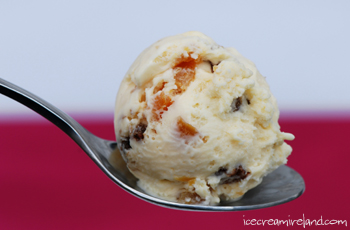 For this week’s column in the
For this week’s column in the  Ingredients:
Ingredients: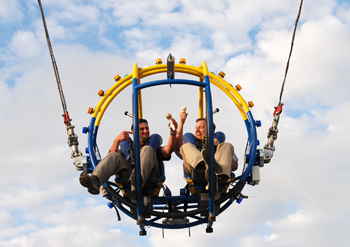 My brother Sean and Cian, our temporary Dingle Shop Manager, decided in a moment of madness to bring ice cream into space.
My brother Sean and Cian, our temporary Dingle Shop Manager, decided in a moment of madness to bring ice cream into space.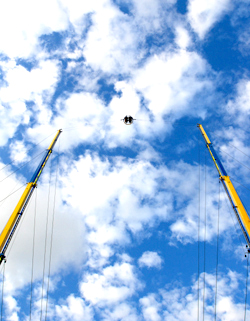 Well, maybe not space, but about as high as you can get in Dingle.
Well, maybe not space, but about as high as you can get in Dingle.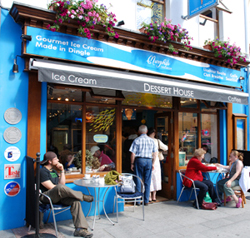 Sorry I haven’t posted for the past few days, but this is our busiest time of the whole year.
Sorry I haven’t posted for the past few days, but this is our busiest time of the whole year.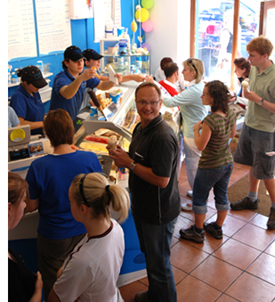
 For my first article in the August series for the
For my first article in the August series for the 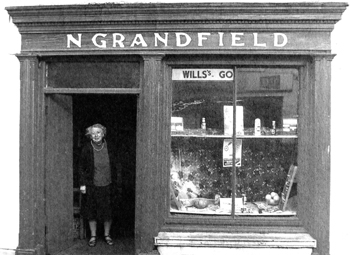
 1 scoop vanilla ice cream (recipe
1 scoop vanilla ice cream (recipe